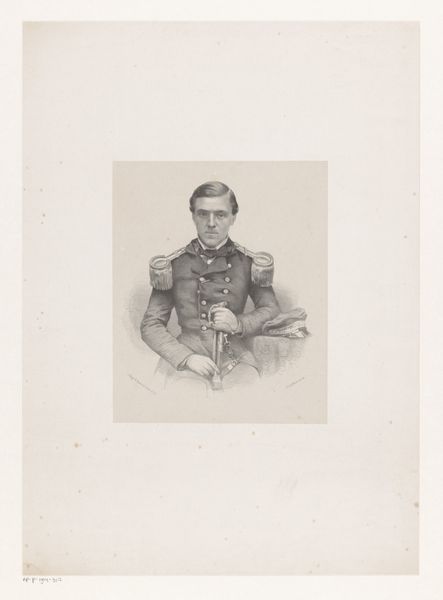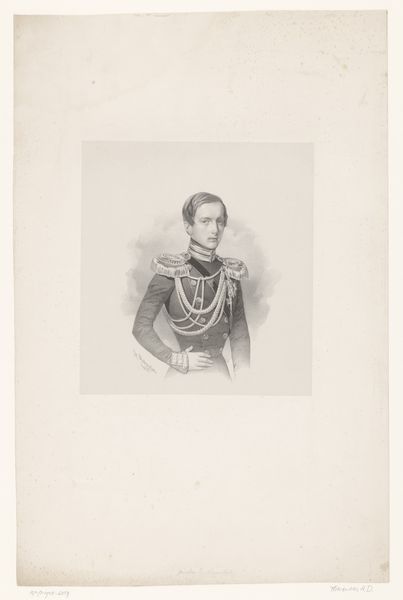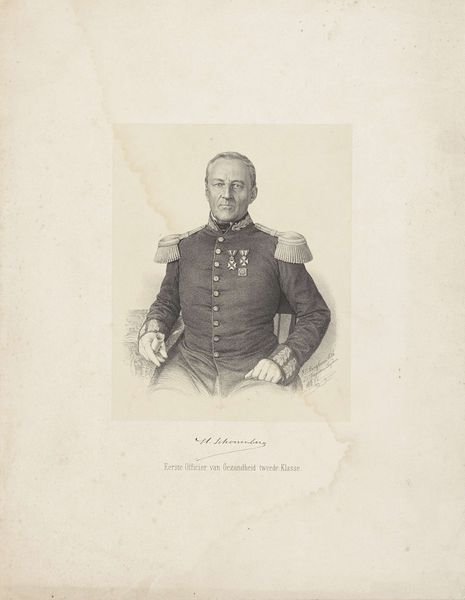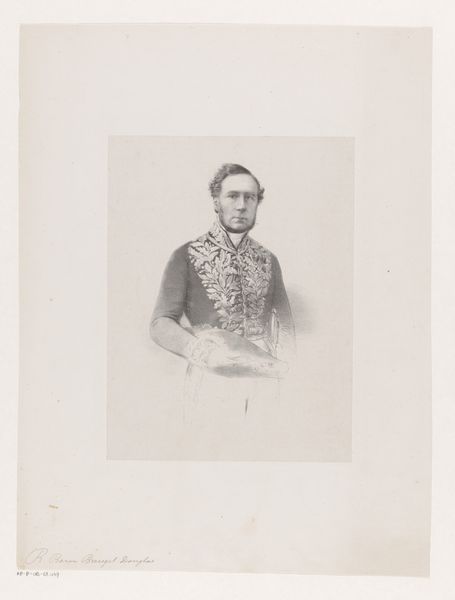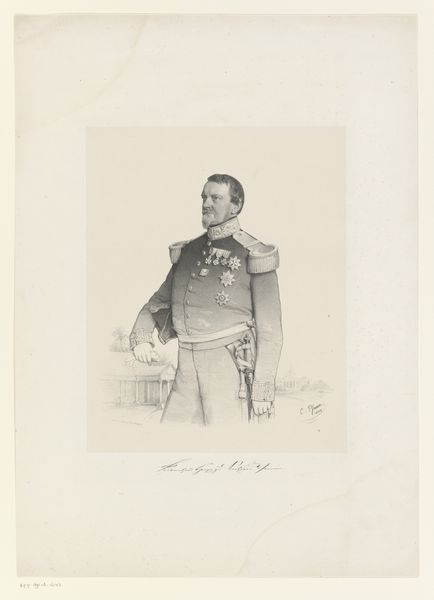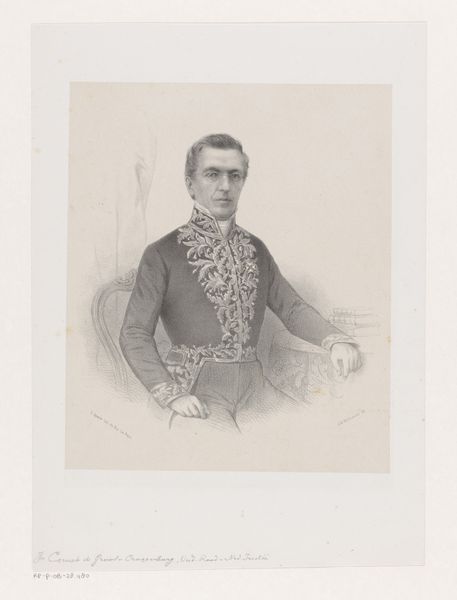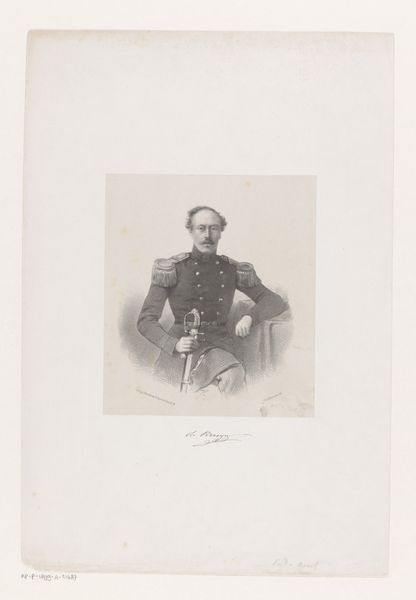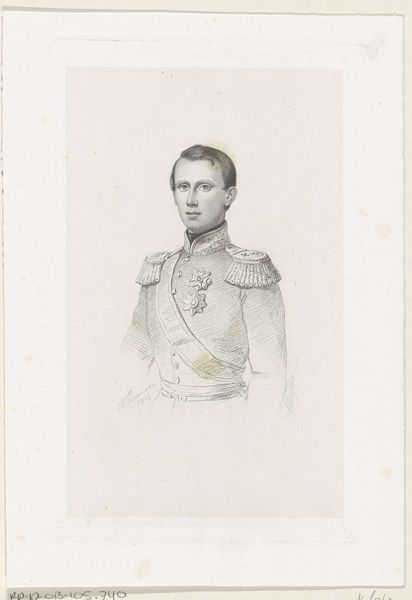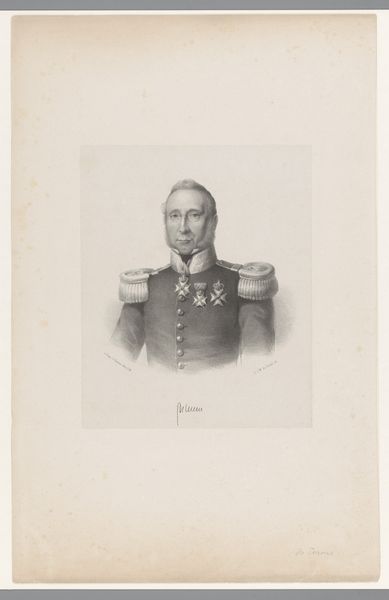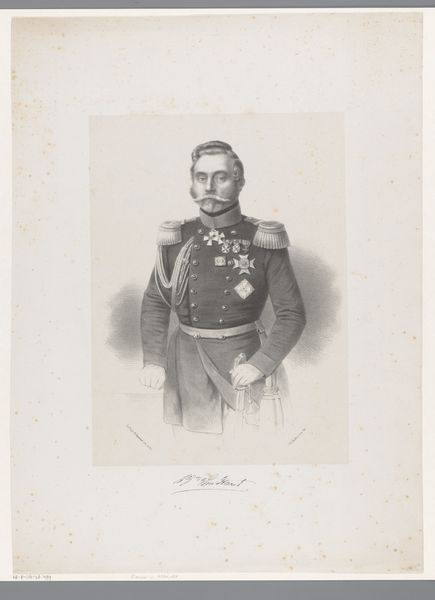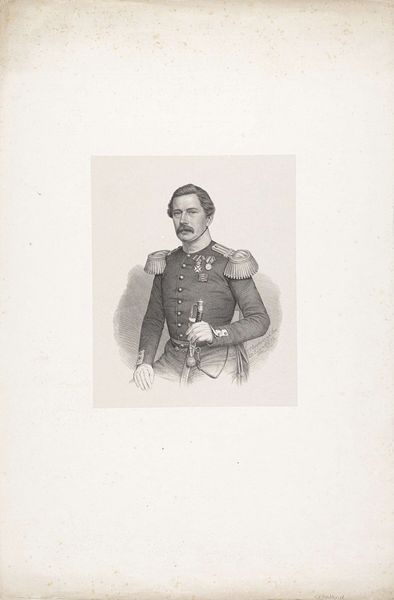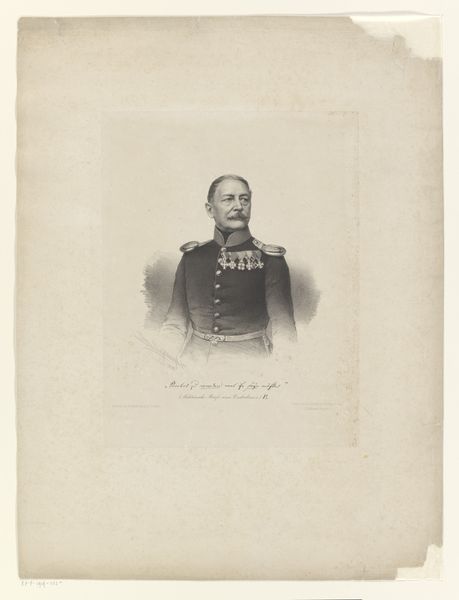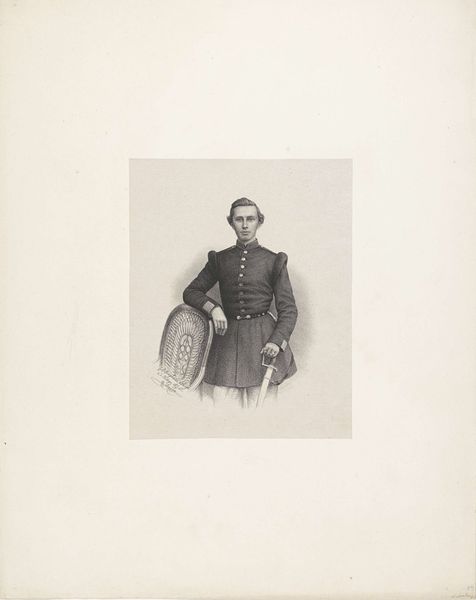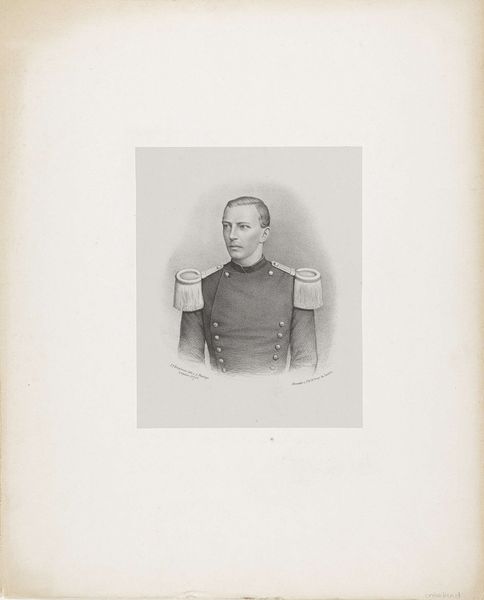
Portret van een onbekende man, mogelijk C.W.T. Osterloh Possibly 1860 - 1869
0:00
0:00
johannpeterberghaus
Rijksmuseum
#
pencil drawn
#
photo of handprinted image
#
light pencil work
#
wedding photograph
#
photo restoration
#
pencil sketch
#
historical photography
#
pencil drawing
#
yellow element
#
pencil work
Dimensions: height 455 mm, width 350 mm
Copyright: Rijks Museum: Open Domain
Editor: So, here we have a portrait from the Rijksmuseum, "Portret van een onbekende man, mogelijk C.W.T. Osterloh," possibly made between 1860 and 1869 by Johann Peter Berghaus. It seems to be a pencil drawing, and the detail is just incredible. What strikes you most about it? Curator: I'm drawn to the materiality of this piece. Notice how the pencil work, categorized as both 'light' and 'detailed,' functions almost like a photograph. But it's not. It's handmade, labor-intensive. Editor: Right, it's pre-photography really taking hold, isn’t it? Curator: Exactly! And it emulates it. Consider the social context: photography democratizes portraiture, threatening the livelihood of artists. This drawing is both a skilled artistic product and evidence of the pressures and technological shifts of the time. Berghaus isn't just capturing a likeness; he's engaging with a changing market, crafting a luxury commodity with painstaking detail. How do you see that reflected in the figure depicted? Editor: I hadn’t considered that at all. The subject's military uniform now reads as another layer of constructed identity within the drawing itself, signaling wealth and status – commodities in their own right. Curator: Precisely. Think about the production of his uniform too; the labor involved in that craft as well. This drawing, by emulating photography, inadvertently highlights the tangible, material processes behind both artistic and social representations of identity in that era. Editor: It’s fascinating to see it in this light; almost like the artist is responding to new industrial processes with old-fashioned skill. Thank you. Curator: My pleasure. It is artworks like this that prompt me to see art beyond aesthetics and engage it as a social artifact deeply enmeshed in the modes of its making.
Comments
No comments
Be the first to comment and join the conversation on the ultimate creative platform.
